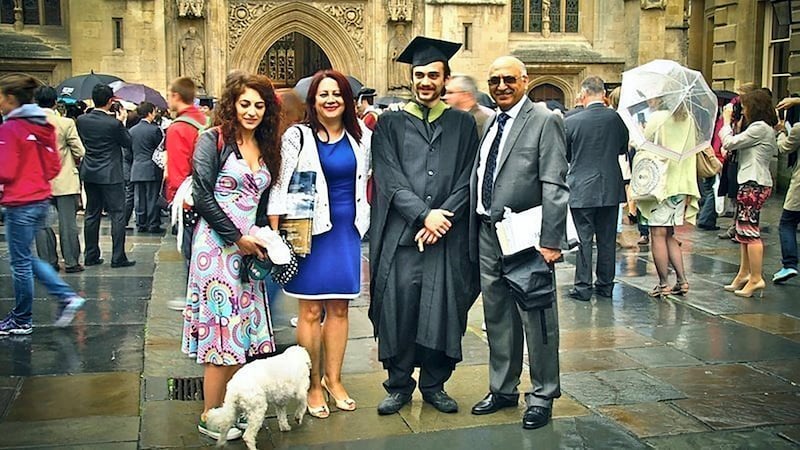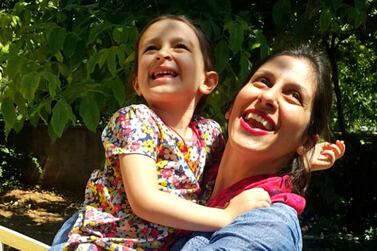The family of a second Iranian-British national has blamed a dispute over a 40-year-old armaments debt between the rival governments for blocking his release from jail.
Anoosheh Ashoori, 65, was arrested in 2017 during a visit to his homeland to see his mother and jailed for 12 years after the Iranian authorities accused him of spying for Mossad.
His son, Aryan, said that the family believed that key to his release was the UK paying off a £380 million debt after it reneged on a deal to supply tanks to the former Shah following the 1979 revolution.
The Iranian judiciary has repeatedly linked the continued detention of another British-Iranian inmate, Nazanin Zaghari-Ratcliffe, with the unpaid debt, according to her husband.
Some £500m is being held by a British court but it has been tied up during years of legal disputes and problems of handing over cash to Iran while under international sanctions.
“Our best hope is not the Iranian judicial system, it’s the debts that the UK has to pay Iran,” said Mr Ashoori, 30, who is based in the UK. “For his specific case, we think this is the transaction that is required.
“We’re just piecing this together. Neither side wants to admit that these two things are related. That will break all political conventions.”
The retired engineer, a married father-of-two who has won an award for his innovations to build earthquake-resistant homes, was accused of espionage and acquiring illegitimate wealth. His family says that suggestions he was spying for Israel are laughable.
He has been unable to secure proper legal representation and relatives have never seen full details of the charges that he faced, echoing complaints of other families.
He is one of at least six people with British connections or nationality that are being held in Iran on what many of them say are fabricated grounds.
Lawyers for Ms Zaghari-Ratcliffe’s husband, Richard, that the arrests or charges of other UK-linked individuals can be traced back to developments in the debt case, according to the letter seen by The Guardian.
They claimed that the government-owned agency that owes the debt has put “legal roadblocks” in the way to limit the payment to Iran. Mr Ratcliffe’s lawyers claimed that the debt could be paid through humanitarian aid or by seeking a sanctions waiver.
Lawyers for Iran have told the National they have applied for a waiver to a branch of the UK finance ministry but are awaiting a response.
Government officials are understood to be looking at other ways to repay the debt but say their hands are tied by international sanctions. The foreign ministers of Iran and the UK were due to speak later on Tuesday.
Mr Ashoori meanwhile remains held at Evin Prison outside Tehran where he is confined to a four-room basement that he shares with about 70 others, according to his daily conversations with his family. His only sight of the sky is from a small yard with an open sewer that is surrounded by four walls, he told them during daily telephone calls.
Iran does not recognise dual citizenship and does not allow consular visits. “It’s all in the hands of people bigger than us and there’s a massive sense of hopelessness” said Aryan Ashoori. He said he had no confidence in the prime minister, Boris Johnson, to resolve the crisis.
A UK government spokesperson said funding to settle the debt was paid to the High Court in 2002. "This is a longstanding case and relates to contracts signed over 40 years ago with the pre-revolution Iranian regime," the spokesperson said. "It would be inappropriate to comment further while litigation continues.”
Mr Ashoori’s sentence was announced at the same time as a ten-year jail term was confirmed for British Council worker Aras Amiri.
Iran said on Tuesday that any cooperation with the British Council, a culture and education outreach body, was banned and would result in prosecution.
The announcement came a day after the US revealed fresh sanctions against senior regime figures. It also offered a reward of $20 million for information to secure the release and return of Robert Levinson, the longest-held US hostage, last seen in Iran in 2007.








